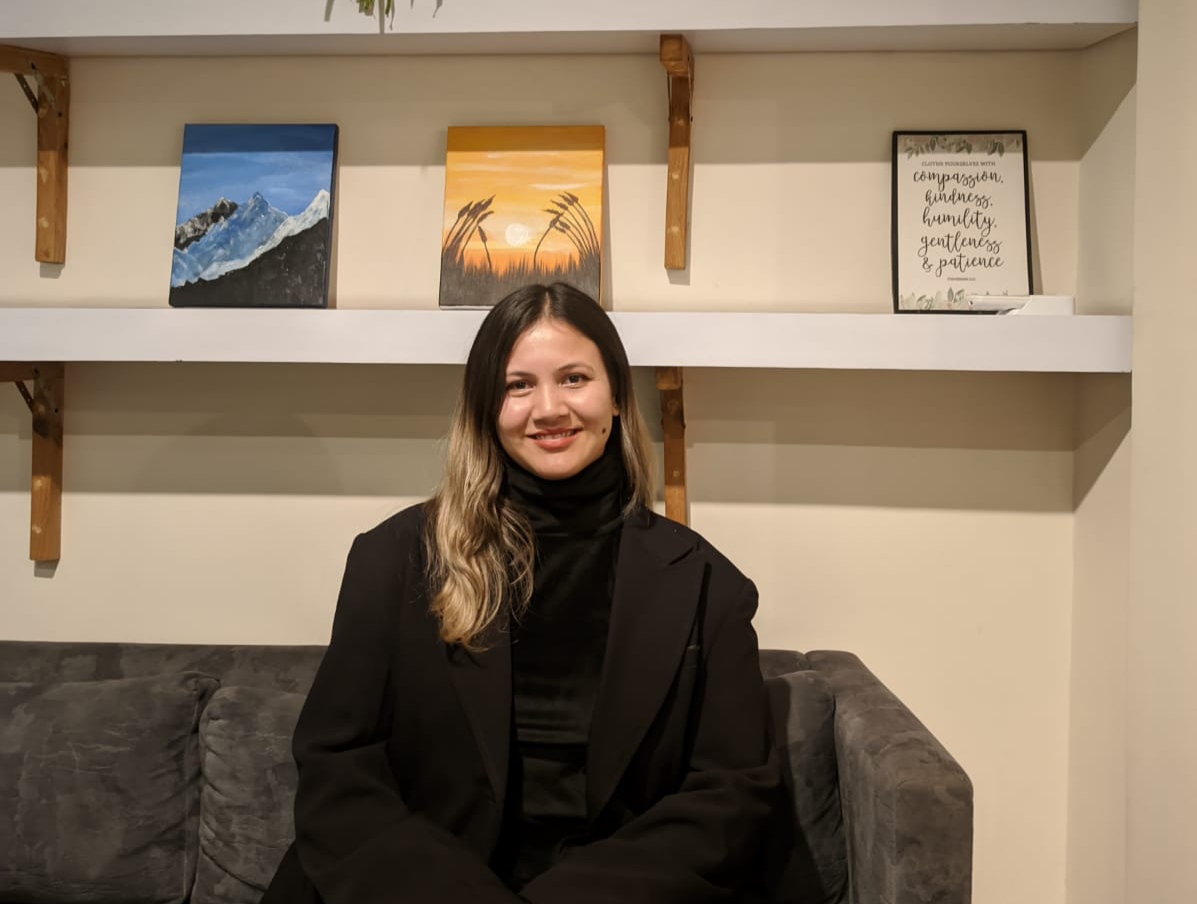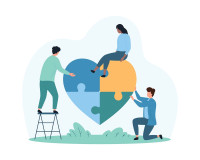Life & Style
Spotting the red flags
Counsellor Shradha Gadtaula discusses what makes a relationship toxic and how to break free from one.
Aarati Ray
The concept of toxic relationships is being discussed more frequently these days and for good reason. With media often glorifying behaviours like manipulation, possessiveness, unresolved conflicts and other harmful elements, it is important to understand what distinguishes a toxic relationship from a healthy one.
Shradha Gadtaula, founder of ‘Manosparsha Nepal’ and ‘Blissful Mind’, who is an expert in mental health counselling for youths, shares her insights on toxicity and unhealthy interdependence in relationships.

How would you define toxicity in the context of romantic relationships?
In any relationship, be it romantic or otherwise, persistent behaviours from a partner can have a great impact on an individual’s well-being, self-esteem and personal development. In a romantic relationship, toxicity can show up as manipulation, jealousy, abuse, unresolved conflicts, possessiveness or anything that gets in the way of the well-being and personal growth of the individuals involved. These harmful actions create a negative and unhealthy dynamic, making the romantic relationship less happy and healthy.
What are the common signs or red flags that indicate a relationship may be toxic?
When helping clients with relationship issues, I’ve noticed that manipulation is a major sign of toxicity. It’s when a partner tries to control everything, like who you talk to or spend time with. Other red flags include disrespect, acting meanly and being physically or emotionally hurtful. If a partner is always criticising and arguing over small things, it can bring down your confidence and lead to violence.
How can toxicity affect one's mental health?
Being in a toxic relationship can mess with your mental health. I've seen people dealing with anxiety and depression because of it, and it often hits their self-esteem hard. Many end up feeling like they're not worthy of any love. In severe cases of emotional and physical abuse, some even develop PTSD, which is a condition where past trauma affects their well-being.
Does being in an unhealthy relationship worsen mental health issues?
Certainly, if someone is already struggling with their mental well-being, they tend to depend more on their partner. When they’re going through a tough time and their partner doesn’t provide the support they need, it makes everything more difficult. The situation can become more serious due to the negative and toxic behaviour of their partner.
What are interdependence and codependence in the relationship?
Interdependency in a relationship means working together and growing together. On the other hand, codependency happens when there are no boundaries or personal space, and you rely on each other so much that you can’t do things on your own. It’s important to figure out if depending on each other is helping you both grow or holding you back because there is a very thin line between interdependency and codependency.
How important is communication pattern in relationships?
Communication patterns play a great role in relationships. Poor communication can worsen the toxicity by creating misunderstandings, escalating conflicts and preventing the resolution of issues. So, effective communication is necessary. Validating your partner’s feelings, listening actively and being empathetic can help resolve conflicts.
How can one prevent themselves from entering into a toxic relationship?
Before getting into a relationship, it’s important to understand the other person. Nowadays, people—especially teens—start relationships too quickly. It is crucial to talk openly from the start. Get to know each other’s needs and set clear boundaries early on. It’s also a good idea to seek support from trusted relatives, friends or family.
When you’re in love or have a crush, you might not notice warning signs in your partner, but your close friends or family can give you a different perspective. So, my suggestion is to communicate well, set boundaries and seek advice from people you trust before starting a relationship. This way, you can figure out if the relationship is right for you and if you’re ready to put in the effort.
What advice would you give someone who realises that their relationship is becoming toxic?
Communication is again the most important thing. When you notice signs of a toxic relationship, the first step is to communicate openly. Clearly express your feelings and dislikes, and set boundaries with your partner. Seek support from trusted friends or family to gain perspective outside the relationship.
Also, consider seeking therapy or counselling. In many cases, individuals may want to end the relationship but struggle to do so because of their toxic partner. Therapy can provide the necessary guidance and support to help someone navigate and potentially exit a toxic relationship.
Can people return to a toxic relationship again after leaving?
Yes. Even when people leave a bad relationship, they might end up going back because of the stronghold of toxicity and dependency. It makes them forget how bad it was. They start thinking about the good times and convince themselves it wasn’t that bad. This is like a shadow from constant emotional abuse and manipulation.
Continuous dependence on a partner can make you forget who you are. So, rediscovering your identity is important. Friends and family can be really helpful during this time.
After leaving a toxic, interdependent relationship, how can individuals begin to rebuild their lives and regain a sense of self and self-worth?
If you’re going through a tough time after a bad relationship, it’s important to reach out to friends and family for help. Take care of yourself and remember who you were before the relationship. Sometimes, toxic relationships can make you lose your friends and support systems, so friends and family must watch for signs and support you.
Try exploring your hobbies, taking care of your well-being, meditating, travelling or finding things that boost your self-esteem and make you happy. If these things don’t help, you can seek professional help.
Can a toxic pattern in one partner lead the other partner to become toxic in a relationship?
Yes. Spending a lot of time with someone can make you adopt their habits and behaviours. You might start thinking that everything your partner does is normal, and you end up normalising and repeating those behaviours.
Even when someone leaves a toxic relationship, they may unintentionally repeat their partner’s toxic patterns in their next relationships. So, in those cases, you need to learn to be accountable for your actions. You also need to understand yourself, your reactions and your responses in the relationship. Because it’s not always one person trapped in a toxic relationship but two.
What factors lead to being toxic, over-possessive or over-controlling?
I cannot pinpoint specific factors or definite causes as there can be multiple influences. Factors such as family relationships, generational trauma, personality traits, negative experiences from past relationships and various other elements can contribute to someone displaying toxic behaviour in a relationship.
What is better—couples therapy or individual therapy?
Both can be useful. Couples therapy is great if you and your partner are ready to talk, understand problems and make positive changes together. But if it’s tough for you to communicate or make changes together, individual therapy might be a good idea for each person to work on themselves.
How does the media influence people’s understanding of toxic relationships?
People these days, influenced by social media and movies, do not have a good understanding of healthy boundaries and toxic behaviours. Movies often romanticise jealousy and toxicity, making it seem normal. Teens who are new to relationships might think these behaviours are okay because they haven’t learned what’s normal yet.
Individuals need to learn about healthy relationships, setting boundaries and good communication. Try to understand and analyse your and your partner’s habits, and see if your actions are affecting your significant partner positively or negatively.




 23.98°C Kathmandu
23.98°C Kathmandu










